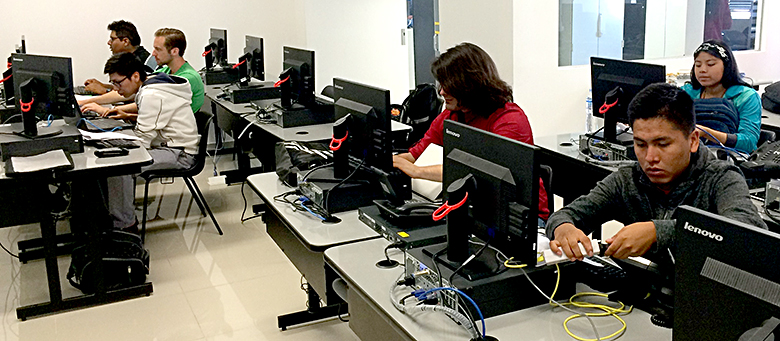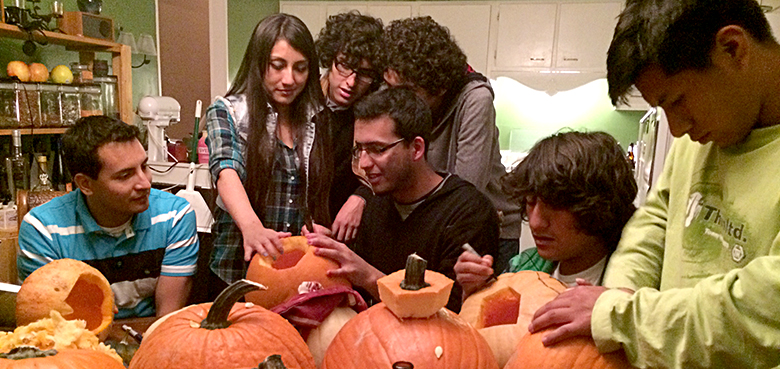
Vic Barlow sees a shift in his students about four hours into their first study abroad experience.
“The first day in Peru, they are in shell shock,” he says. “Usually by about lunch time, they’ve met Peruvian students, and they’ve started talking. They discover they like the same music and play the same video games, that Peruvians follow American TV, movies and sports. Bottom line, they discover that even though they’re in a foreign country and everything is different, they have similarities.”
Barlow, professor of computer and information technology, and Ray Hansen, clinical associate professor of computer and information technology, have led a study abroad experience to TECSUP in Peru each May since 2009.
In 2011, TECSUP students started coming to Purdue for two weeks in the fall. With this addition, Barlow believes, the student experience is truly integrative and beneficial to both institutions.
While in Peru, students from both campuses learn together in the same classroom, and faculty from both institutions share teaching responsibilities. The curriculum has included IP telephony systems using open-source tools or UML modeling and banking app development for mobile devices. In May 2016, the Purdue students earned three academic credits as they learned about IP telephony systems. At the end of the academic session, they were treated to more cultural experiences around the country.
 Purdue will return the favor in September as they host 12 students and two faculty from TECSUP for two weeks. Their time on campus will involve several mini-courses on topics they don’t normally study, such as robotics, cybersecurity, cyber forensics, and data mining. Computer and Information Technology students will participate in the courses as well as host students during their stay.
Purdue will return the favor in September as they host 12 students and two faculty from TECSUP for two weeks. Their time on campus will involve several mini-courses on topics they don’t normally study, such as robotics, cybersecurity, cyber forensics, and data mining. Computer and Information Technology students will participate in the courses as well as host students during their stay.
Nicole Hands, clinical assistant professor in computer and information technology, took part in the study abroad as a graduate student. For the last few years, she has hosted a gathering for the TECSUP students, including a pumpkin carving party in 2015. The American Halloween tradition was a fun experience for the students, she said.
“My major goal for the study abroad program is for both sets of students to realize and understand that although there are differences, there are also similarities,” Barlow said. “Perhaps more similarities than differences and perhaps the similarities are more important than the differences.”
Barlow and Hansen ask their students to write essays reflecting on what they learned during their study abroad experience. The students often point out the differences in culture and the similarities in pop culture tastes.
They also show an appreciation for the hospitality of their hosts.
“The Peruvian people are some of the friendliest and most hospitable people I have met,” wrote Kimberly Dsilva, who traveled to Peru and TECSUP in May 2016. “They welcomed us to their wonderful country and we left there feeling as if we were part of their family. I know that if I ever find myself going back, I will always have friends there.”
